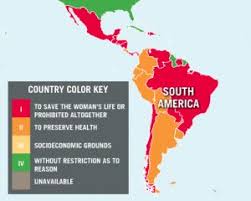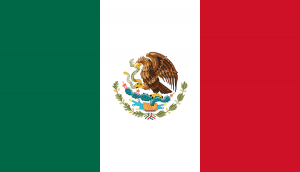By Salma Zoe Diaz Diaz
We all know what the talk is, that excruciating moment when your parent sits down next to you and says, “we need to talk.” You hold your breath as they stumble over their words “when you decide to have sex, one day…”. You feel yourself going a deep crimson in heated embarrassment as they stammer on “… just remember to be careful.” You both heave a huge sigh of relief that it’s over and you can get on with life again but in truth, we need much more from our parents. We need ‘the talk’ to be far more honest and open than that. It’s the responsibility of each parent to try to give their child the space to talk about anything. That environment needs to be created from the moment a child is born. Whenever a child enters puberty, they feel embarrassed about their sexual feelings, especially admitting to them in front of their parents. However, that’s the parents’ job; they should suck up the embarrassment and do what needs to be done anyway. Ensuring your child is safe is far more important than feeling uncomfortable.
Each year there are thousands of unsafe abortions performed in Latin America, including in my country of Peru. According to the Guttmacher Institute, during 2010–2014, an estimated 6.5 million induced abortions occurred each year in Latin America and the Caribbean, and the proportion of all pregnancies in Latin America and the Ca ribbean ending in abortion increased between 1990–1994 and 2010–2014, from 23% to 32% Yet, they point out that more than 97% of women of reproductive age in Latin America and the Caribbean live in countries with restrictive abortion laws. Abortion is not permitted for any reason in six countries. Nine others allow it almost exclusively to save the woman’s life, with only some offering limited exceptions for rape (Brazil, Chile, Mexico and Panama) and grave fetal anomaly (Chile, Panama and almost half of the states of Mexico). Fewer than 3% of the region’s women live in countries where abortion is broadly legal—that is, permitted either without restriction as to reason or on socioeconomic grounds. Therefore, women, especially young women who experience unplanned pregnancies are likely to resort to illegal and often unsafe abortions that will have major health consequences for them.
ribbean ending in abortion increased between 1990–1994 and 2010–2014, from 23% to 32% Yet, they point out that more than 97% of women of reproductive age in Latin America and the Caribbean live in countries with restrictive abortion laws. Abortion is not permitted for any reason in six countries. Nine others allow it almost exclusively to save the woman’s life, with only some offering limited exceptions for rape (Brazil, Chile, Mexico and Panama) and grave fetal anomaly (Chile, Panama and almost half of the states of Mexico). Fewer than 3% of the region’s women live in countries where abortion is broadly legal—that is, permitted either without restriction as to reason or on socioeconomic grounds. Therefore, women, especially young women who experience unplanned pregnancies are likely to resort to illegal and often unsafe abortions that will have major health consequences for them.
In my case, I got pregnant in the summer of 2019. I felt alone and embarrassed with myself. I considered getting an abortion but before I could even make that decision, I had a miscarriage. I was heartbroken and still lonely, as the father of my baby decided to ignore me and block me without even knowing that I was expecting a baby from him. I tried and tried to find a way to tell him, but when I finally found a way, it was too late. I decided then, that I didn’t want to tell him anymore. I kept it away from everyone and it made me feel lonelier and sadder. I wanted to forget about what happened. Neglecting a problem is never the answer as it keeps consuming you from the inside. When you’re the only one that knows, you tend to feel hopeless.
Recently, one week ago, I decided to tell my mother what had happened. I saw the pain in her eyes as she realized that she had failed at gaining my complete trust. I couldn’t tell her because I felt like she was going to be disappointed but when we are parents, that’s what we need to be. Parents. No matter how bad the situation is. I now know that and I wouldn’t be able to keep that big of a secret to my mother or my father ever again. This might be different for a lot of people as their parents may not know how to be a good parent. However, this is not only for our present parents but for our future parents.
When young adults don’t have the proper information given to them sometimes, this can lead to unplanned pregnancies. This, in turn, can cause someone to go through a difficult decision such as picking whether to have an abortion or keep the baby. This is where parents should take the initiative to make their child feel safe about this issue they are facing. If the parents are not supportive of their child, this can lead to unsafe abortion. Unsafe abortions have a very high risk of health issues later on in life, such as infertility. This can also cause mental trauma in patients that go through unsafe and safe abortions.
The governments in Latin America need to provide safe places for women who conceive and would like to have abortions as well as therapy places that can provide counseling for their trauma. Abortion is the taking of human life in a horrific fashion – the baby is ripped apart. We also have to realize that a lot of countries don’t have the privilege of providing safe abortion methods. Especially in Latin America, where I’m from, as it is viewed as an inhuman thing to do. This is why it was very hard for me to come to my parents when I found out I was pregnant. In Latin culture, abortion is a very delicate topic and a lot of my family members are against it.
As a country and world, we should all be more open to these delicate topics such as “the talk,” and unplanned pregnancies. Abortion rates run high in the world, and unsafe abortion is a common factor. In order to steer clear of unsafe abortion, parents should face the embarrassments that they may feel and put it to the side when it comes to their children. This will help with keeping young adults safe if they choose to have an abortion with an unplanned pregnancy. Young adults are just looking for support when it comes to these types of issues. Having support from their parents and loved ones in times like these are very important to one’s mental health, and physical health. This is why parents should know better and not just make decisions that are not going to make the situation any better, like kick them out of the house or yell at them for being stupid. First, they need to take care of the current “problem” and after they come up with a solution, they can talk about it. At the end of the day, we all make mistakes and as a parent, you have to be supportive and help your kids learn from these mistakes.
However, the burden to solve the issue of unplanned pregnancies should not just be on the parents. Governments that refuse to liberalize laws restricting abortion should have to provide better sex education in the schools along with free access to contraception. Governments could also institute classes for parents about how to talk frankly with their children about sex and birth control. Without that, young people will continue to get pregnant and then choose the more horrifying option of unsafe abortion, risking their physical and mental health in the process. We owe them better than this.
Salma Zoe Diaz Diaz is a junior at East Carolina University. She is set to graduate in December 2021 with a degree in Anthropology and a minor in Ethnic Studies. After graduating, she plans to continue her education and complete a Master’s Degree.









 ribbean ending in abortion increased between 1990–1994 and 2010–2014, from 23% to 32% Yet, they point out that more than 97% of women of reproductive age in Latin America and the Caribbean live in countries with restrictive abortion laws. Abortion is not permitted for any reason in six countries. Nine others allow it almost exclusively to save the woman’s life, with only some offering limited exceptions for rape (Brazil, Chile, Mexico and Panama) and grave fetal anomaly (Chile, Panama and almost half of the states of Mexico). Fewer than 3% of the region’s women live in countries where abortion is broadly legal—that is, permitted either without restriction as to reason or on socioeconomic grounds. Therefore, women, especially young women who experience unplanned pregnancies are likely to resort to illegal and often unsafe abortions that will have major health consequences for them.
ribbean ending in abortion increased between 1990–1994 and 2010–2014, from 23% to 32% Yet, they point out that more than 97% of women of reproductive age in Latin America and the Caribbean live in countries with restrictive abortion laws. Abortion is not permitted for any reason in six countries. Nine others allow it almost exclusively to save the woman’s life, with only some offering limited exceptions for rape (Brazil, Chile, Mexico and Panama) and grave fetal anomaly (Chile, Panama and almost half of the states of Mexico). Fewer than 3% of the region’s women live in countries where abortion is broadly legal—that is, permitted either without restriction as to reason or on socioeconomic grounds. Therefore, women, especially young women who experience unplanned pregnancies are likely to resort to illegal and often unsafe abortions that will have major health consequences for them.